Francis: 'Divine inspiration present in every faith'
Francis triples-down on his statements about all religions being paths to reach God, tells inter-religious group to 'be guided by divine inspiration present in every faith.'
Editors’ Notes
On 17th September, Francis “tripled-down” on his statement about all religions being “a path to arrive at God.” The text only appears to have been released today. The key text is:
We need to keep meeting, to weave bonds of fraternity and to allow ourselves to be guided by the divine inspiration present in every faith, in order to join in “imagining peace” among all peoples. We need such “occasions to speak with one another and to act together for the common good and the promotion of the poor”.
In a world at risk of being fragmented by conflicts and wars, the efforts made by believers are invaluable for holding out visions of peace and fostering fraternity and peace among peoples everywhere. (Emphasis added)
No doubt some will quibble about the meaning of this text, and try to explain it away.
But it is completely clear what he means from the context of the last few weeks, and the last few years, and the last few decades.
This is especially clear given his reference To John Paul II'S Assisi prayer meeting.
Some have expressed confusion, again, about what Francis meant. There is no confusion; this is in fact the explanation of what he meant previously.
The ideas expressed in Francis’ address were condemned in advance by the pre-conciliar popes and the whole of the Catholic religion. For instance, here is Pope St Pius X in Pascendi:
“Do we inquire concerning inspiration? Inspiration, they reply, is distinguished only by its vehemence from that impulse which stimulates the believer to reveal the faith that is in him by words or writing. It is something like what happens in poetical inspiration, of which it has been said: There is God in us, and when he stirreth he sets us afire. And it is precisely in this sense that God is said to be the origin of the inspiration of the Sacred Books.
“The Modernists affirm, too, that there is nothing in these books which is not inspired. In this respect some might be disposed to consider them as more orthodox than certain other moderns who somewhat restrict inspiration, as, for instance, in what have been put forward as tacit citations. But it is all mere juggling of words. For if we take the Bible, according to the tenets of agnosticism, to be a human work, made by men for men, but allowing the theologian to proclaim that it is divine by immanence, what room is there left in it for inspiration?
“General inspiration in the Modernist sense it is easy to find, but of inspiration in the Catholic sense there is not a trace.” (Pascendi, No. 22)
Pope Pius XI wrote in Mortalium Animos (1928):
“Certainly such attempts can nowise be approved by Catholics, founded as they are on that false opinion which considers all religions to be more or less good and praiseworthy, since they all in different ways manifest and signify that sense which is inborn in us all, and by which we are led to God and to the obedient acknowledgment of His rule.
“Not only are those who hold this opinion in error and deceived, but also in distorting the idea of true religion they reject it, and little by little, turn aside to naturalism and atheism, as it is called; from which it clearly follows that one who supports those who hold these theories and attempt to realize them, is altogether abandoning the divinely revealed religion.”
This is pure naturalism, and apostasy, for the reasons discussed here:
The results of this are clear:
This story is developing.
If you value The WM Review and want to lend a hand, then subscribe today:
Francis’ address to an “inter-religious meeting with young people,”
Tuesday 17 September 2024
Dear brothers and sisters, I am pleased to greet all of you, representatives of the Churches and Christian Communities and of the world’s great religions, as well as the civil authorities present. I thank the Community of Sant’Egidio for the passion and creativity with which it continues to keep the spirit of Assisi alive. Thirty-eight years have passed since 1986, when the first Meeting for Peace was held. Many events have impacted our world since that time: the fall of the Berlin Wall, the beginning of the Third Millennium, the spread of fundamentalist ideologies and the outbreak of conflicts with global repercussions, to say nothing of the challenges posed by climate change, the advent of emerging and converging technologies, and the pandemics that have affected humanity. Truly, we are in the midst of “epochal changes” without having, at present, a clear idea of where they will lead us.
Nevertheless, each year, as representatives of the world’s great religions and men and women of good will, you have journeyed as pilgrims to different cities in Europe and throughout the world, in order to keep alive the spirit of Assisi. In doing so, you remind us of the challenge to which my predecessor, Saint John Paul II, referred in his words at the end of that memorable day. “More perhaps than ever before in history,” he pointed out, “the intrinsic link between an authentic religious attitude and the great good of peace has become evident to all... Together we have filled our eyes with visions of peace: they release energies for a new language of peace, for new gestures of peace, gestures which will shatter the fatal chains of divisions inherited from history or spawned by modern ideologies. Peace awaits its builders”.[1] The spirit of Assisi is a blessing for this world of ours, still torn by numerous wars and acts of violence. The “spirit” of Assisi must blow even stronger in the sails of dialogue and friendship between peoples.
This year you are meeting in Paris, and this evening you are gathered before the Cathedral that, after the tragic fire, is about to reopen its doors for prayer. How much we need to pray for peace! The risk that the many conflicts in our world, rather than ceasing, will dangerously spread, is all too real. I join my voice to your plea, and that of all the victims of war, in urging political leaders: “Stop war! Stop wars!”. We are now destroying the world! Let us stop while there is still time!
May this meeting encourage all believers to rediscover their vocation to nurture fraternity between peoples in our time. All too often in the past, religions were used to fuel conflicts and wars. The danger of this continues, even in our own day.
Allow me to reiterate once more the conviction that I expressed together with Grand Imam Ahmad Al-Tayyeb: “Religions must never incite war, hateful attitudes, hostility and extremism, nor must they incite violence or the shedding of blood. These tragic realities are the consequence of a deviation from religious teachings. They result from a political manipulation of religions and from interpretations made by religious groups who, in the course of history, have taken advantage of religious sentiment in the hearts of men and women”. [2] We must keep religions from giving in to the temptation to become a means of fueling forms of nationalism, ethnocentrism and populism. Wars only escalate. Woe to those who try to drag God into taking sides in wars!
The urgent task of the religions is to foster visions of peace, as you are demonstrating these days in Paris. As men and women of different cultures and religious beliefs, you have experienced the power and beauty of universal fraternity. This is the vision our world needs today. I encourage you to persevere in your efforts to be artisans of peace. If others continue to make war, together we can work for peace. In the Encyclical Fratelli Tutti, I urged believers to “contribute significantly to building fraternity and defending justice in society. Dialogue between the followers of different religions does not take place simply for the sake of diplomacy, consideration or tolerance. In the words of the Bishops of India, ‘the goal of dialogue is to establish friendship, peace and harmony, and to share spiritual and moral values and experiences in a spirit of truth and love’”.[3]
It is against this backdrop that the title of this Paris Meeting – “Imagine Peace” – is most eloquent. We need to keep meeting, to weave bonds of fraternity and to allow ourselves to be guided by the divine inspiration present in every faith, in order to join in “imagining peace” among all peoples. We need such “occasions to speak with one another and to act together for the common good and the promotion of the poor”.[4] In a world at risk of being fragmented by conflicts and wars, the efforts made by believers are invaluable for holding out visions of peace and fostering fraternity and peace among peoples everywhere.
Distinguished representatives of the Churches and Christian Communities and of the world’s great religions, men and women of good will who are taking part in this Meeting! Today, even more than in the past, great responsibility for peace has been placed in your hands. This demands on our part wisdom, boldness, generosity and determination. God has placed also in our hands his dream for the world: fraternity between all peoples.
In my Encyclicals Laudato Sì andFratelli Tutti, I “imagined” a future for this world of ours: a single home (our planet) and a single family (that of all peoples). God has entrusted all of us with the responsibility to encourage and lead the members of our human family to live together in fraternity and peace.
Rome, Saint John Lateran, 17 September 2024
HELP KEEP THE WM REVIEW ONLINE!
As we expand The WM Review we would like to keep providing free articles for everyone.
Our work takes a lot of time and effort to produce. If you have benefitted from it please do consider supporting us financially.
A subscription from you helps ensure that we can keep writing and sharing free material for all. Plus, you will get access to our exclusive members-only material.
(We make our members-only material freely available to clergy, priests and seminarians upon request. Please subscribe and reply to the email if this applies to you.)
Subscribe now to make sure you always receive our material. Thank you!
Further Reading:
Follow on Twitter and Telegram:
[1] Address to the Representatives of the Christian Churches and Ecclesial Communities and of the World Religions assembled in Assisi, Basilica of Saint Francis, 27 October 1986.
[2] Document on Human Fraternity for World Peace and Living Together, Abu Dhabi (4 February 2019):L’Osservatore Romano, 4-5 February 2019, p. 6.
[3] No. 271.
[4] No. 282.
[01449-EN.01] [Original text: French - working translation]
[B0728-XX.02]

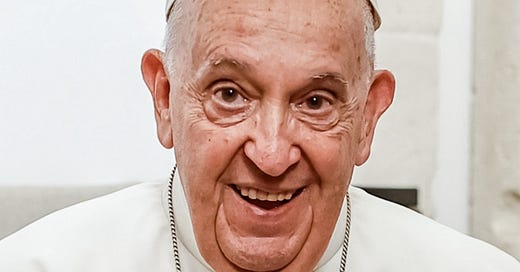


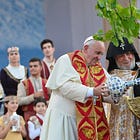
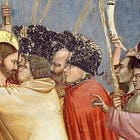
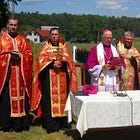
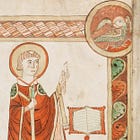


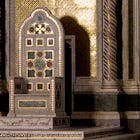
I briefly (very briefly!) listened to a YouTube conversation between Lilia Rose and Jimmy Akin, who were discussing Francis’ recent statements about all religions being different ways to God.
https://www.youtube.com/watch?v=3_9-ANB7oks&t=67s
Rose commented that those who take exception to these statements and call them heretical or contrary to the Catholic faith are just “looking for him to trip up”. Akin commented that we have to understand Francis’ words in the context of what he has said of his broader views of evangelization and in the the context of the early Fathers’ understanding that the truths of God that are found in other religions are “seeds”. Moreover, this view of truth seeds, consonant with Catholic teaching, they say, should be understood as the main thrust of Francis' words even if those words are misleading on the surface. I would be interested in hearing others’ opinions about this line of defense.
My quick take is that we have seen too much in his many other public statements and in his actions to reasonably believe that Francis himself views, and thus intends others to see, the Catholic Faith as the one true faith and the Catholic Church as identical to Christ’s Church. That even understates it. His animosity toward proselytism and lack of call for any non-Catholics to convert are just so much glaring evidence. Further, he distinguishes his message from that of pre-V2 Church:
"If in the past, our [religious] differences set us at odds, nowadays we see in them the richness of different ways of coming to God." — Meeting of the Holy Father Francis with the representatives of religions on the theme “Religions and Education: towards a Global Compact on Education”, 05.10.2021
https://press.vatican.va/content/salastampa/en/bollettino/pubblico/2021/10/05/211005c.html?fbclid=IwY2xjawFhUxxleHRuA2FlbQIxMAABHU7xe0BgNC_8S85RwwHAyBU1CuPpFf-KwBWAQLqILGwK9VynpQML1kJ-Mg_aem_vZbATTS0Tv6purHO48qubw
Finally, the whole spirit of Assisi and V2 ecumenism that largely founds his message runs afoul of the obvious truth that any false religion is a grave evil — indeed among the gravest. No one in their Catholic right mind would want another person to follow a false religion or call such a religion “rich” or say God wills it in any positive sense.
Any additional thoughts?
Another point.
The work of Jesus Christ is finished already. How could Someone who had reached God having ascended there, have fraternity who are still in the way, and who are not even with Him. It is really hard to comprehend how?